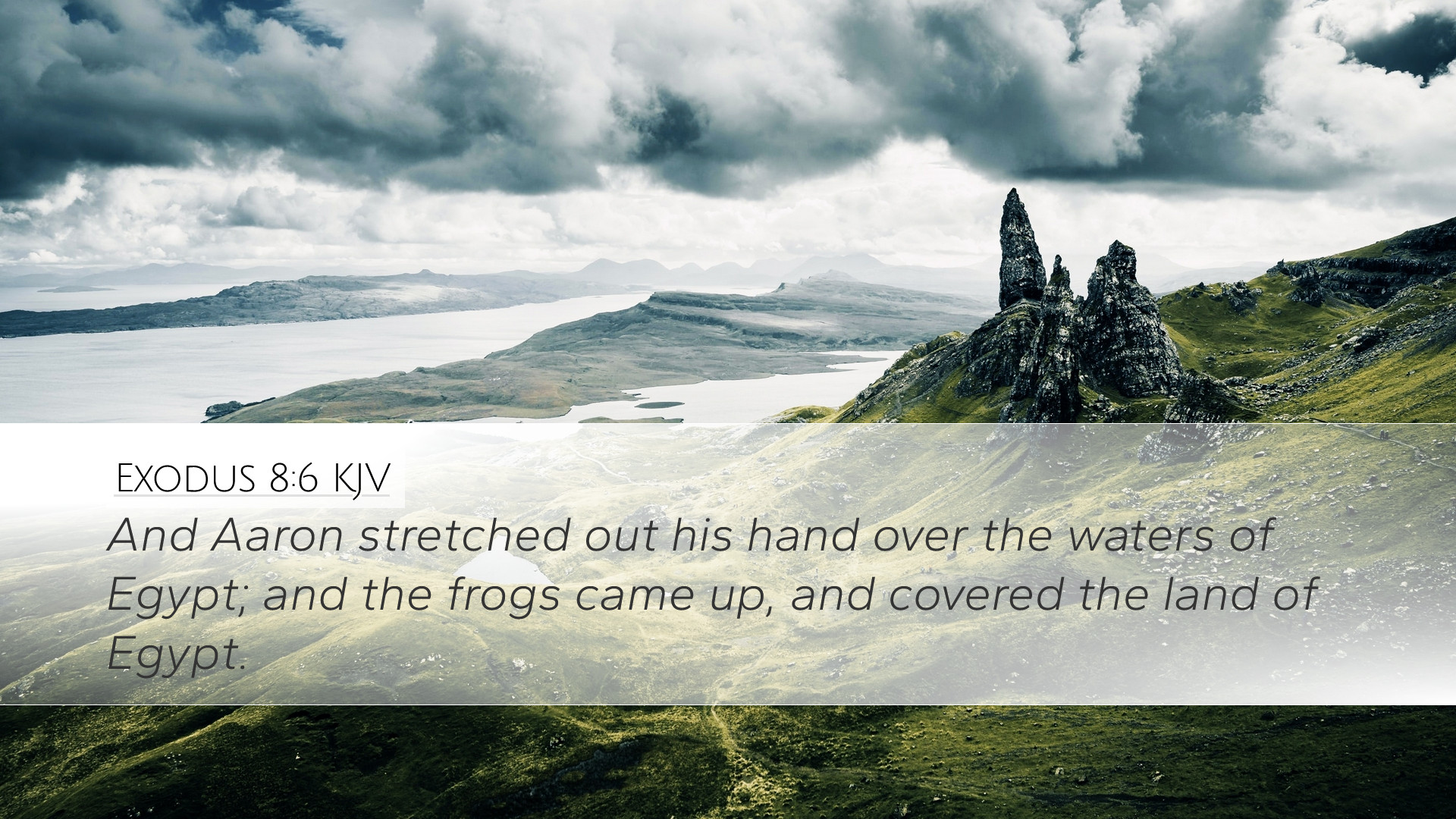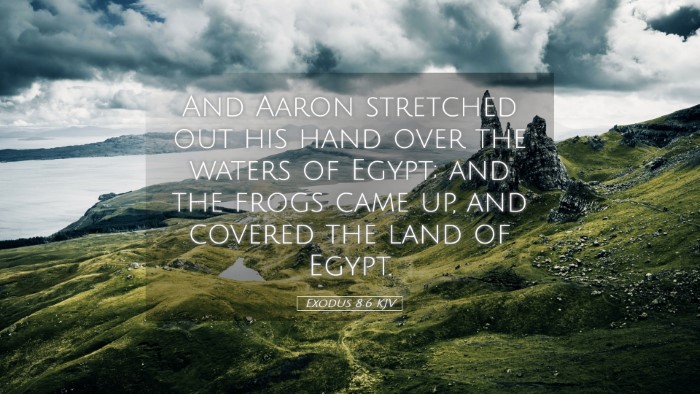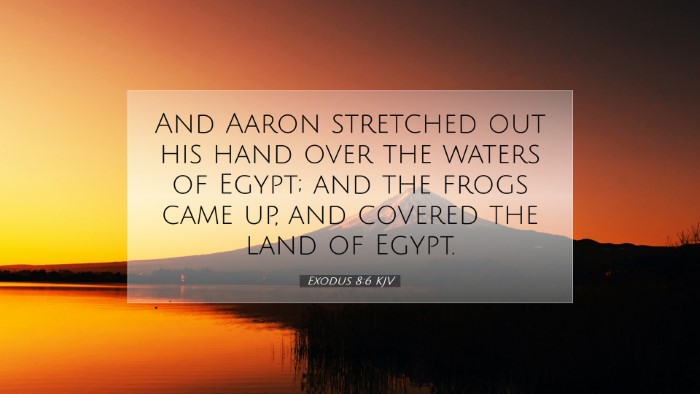Exodus 8:6 - Commentary Summary
Verse Text: "So Aaron stretched out his hand over the waters of Egypt, and the frogs came up and covered the land of Egypt." (Exodus 8:6, ESV)
Introduction to the Plague of Frogs
The plague of frogs is the second of the ten plagues of Egypt, a series of divine judgments meant to demonstrate God's power and sovereignty over Egypt and its gods. In this moment, Aaron’s action signifies the communication of God’s will through His appointed leader.
Analysis of Key Themes
The Authority Given to Aaron
Matthew Henry emphasizes Aaron's role as the spokesperson for Moses. His act of stretching forth his hand symbolizes the authority bestowed upon him by God. It illustrates a significant theme of divine delegation, where God's chosen leaders become the instruments of His will on earth.
The Nature of the Plagues
Albert Barnes comments that the plagues serve to not only punish but to also provide an opportunity for repentance. The frogs are a unique choice, as they are associated with fertility and life in Egyptian culture. Their overwhelming presence serves as a stark confrontation with the false gods of Egypt.
The Significance of Numbers in God's Judgments
The presence of frogs, as an overwhelming multitude, indicates the extensive judgment of God. Adam Clarke notes that the number of frogs symbolizes both God’s displeasure and the futility of the Egyptian magicians’ attempts to replicate God’s wonders. The incapability of Egypt's sorcerers to control or mitigate the plague further cements the notion of God’s supreme authority.
Observations on Divine Judgment
Through the account of the frogs, we observe a gradual unveiling of God’s immense power. The Egyptian magicians can mimic several miracles, but they cannot remove the plague. This emphasizes the impotence of idols and false gods against the true God of Israel.
Theological Implications
This passage raises significant theological questions about the nature of judgment and mercy. While God sends judgment as a form of retribution, the continual call for Pharaoh’s repentance illustrates His merciful nature. Henry argues that even amidst the fury of God’s judgment, there lies a thread of grace extended to Egypt.
Pastoral Applications
For pastors and theologians, Exodus 8:6 provides profound insights into the character of God as both just and merciful. It calls for reflection on how God uses circumstances to challenge the hearts of people, as He did with Pharaoh. Several applications can be drawn:
- Understanding God's Sovereignty: Recognizing that God can exert His power over nature and nations serves as a reminder of His ultimate authority.
- Responding to Conviction: Just as Pharaoh was faced with the choice of repentance, congregants are encouraged to respond to God’s pressing upon their hearts.
- Expectation of God's Intervention: The church must hold onto the belief that God intervenes in human affairs, often in surprising and overwhelming ways.
Conclusion
Exodus 8:6 serves as a powerful reminder of the consequences of resisting the will of God. It compels believers and scholars alike to explore the depths of divine authority and the richness of grace available through repentance. The overwhelming invasion of frogs not only illustrates God's judgment but also serves as a call to recognize His supreme power and a prompt towards transformation for those who will heed His message.


